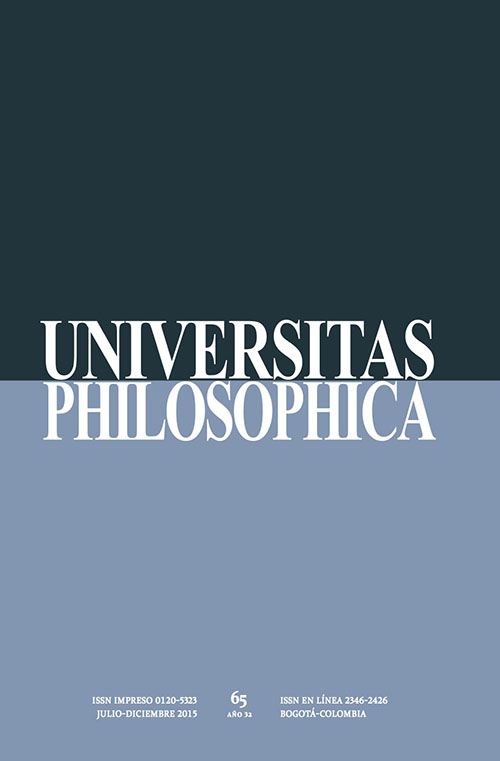Abstract
In the summer of 1995, Santiago Castro-Gómez wrote a convincing text entitled Critique of Latin American Reason, and continued Roberto Salazar-Ramos’ work‒who also took part in The Group of Bogotá, responsible for institutionalizing the project of Latin American Philosophy in Colombia‒in order to show how the creation of “The Latin American” was possible through the operation of a series of discourses. Rather than an a priori, the category of “The Latin American” is defined by Castro-Gómez as the effect of a series of discourses to which a specific cultural identity was provided. Consequently, the author uses the tradition of historicism to rethink the history of ideas, so that, instead of studying the reception of European ideas and measuring how close to that scaffolding was Latin American thought, its study should begin from the philosophical and scientific practices themselves as a “part of the critical exercise in Colombia”. It is precisely within this horizon opened by Castro-Gómez’s writings in which this essay is inserted.
This journal is registered under a Creative Commons Attribution 4.0 International Public License. Thus, this work may be reproduced, distributed, and publicly shared in digital format, as long as the names of the authors and Pontificia Universidad Javeriana are acknowledged. Others are allowed to quote, adapt, transform, auto-archive, republish, and create based on this material, for any purpose (even commercial ones), provided the authorship is duly acknowledged, a link to the original work is provided, and it is specified if changes have been made. Pontificia Universidad Javeriana does not hold the rights of published works and the authors are solely responsible for the contents of their works; they keep the moral, intellectual, privacy, and publicity rights.
Approving the intervention of the work (review, copy-editing, translation, layout) and the following outreach, are granted through an use license and not through an assignment of rights. This means the journal and Pontificia Universidad Javeriana cannot be held responsible for any ethical malpractice by the authors. As a consequence of the protection granted by the use license, the journal is not required to publish recantations or modify information already published, unless the errata stems from the editorial management process. Publishing contents in this journal does not generate royalties for contributors.


